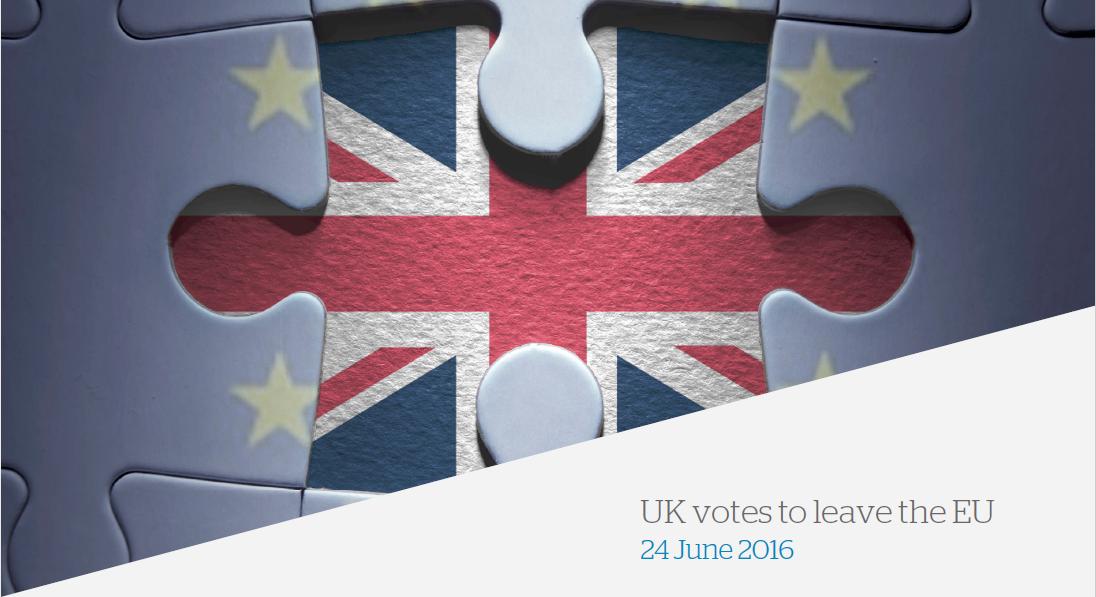UK votes to leave the EU
UK votes to leave the EU
With the UK’s referendum concluding in the unexpected result of voting to leave the EU, market sentiment has reacted negatively this morning. Ahead of the referendum, both UK equities and sterling had risen as expectations of a ‘remain’ vote increased. However, the initial reaction as results filtered through overnight was sterling weakness, with the UK currency dropping over 10% versus the dollar (its biggest overnight fall on record). Global equity markets have opened considerably lower this morning as the risks to the global outlook come to the fore.
At this stage there are still many variables and uncertainty is likely to keep sentiment subdued in the short term. Over the coming weeks, both political risk and the economic uncertainty will be subject to greater focus, particularly as we have some major elections, namely the US, Germany and Spain, through the latter half of 2016. At the time of writing we have not had any definitive responses from any of the major central banks, aside from the confirmation that the Bank of England will provide liquidity to the banking sector if further stresses appear in financial markets. We believe that policymakers will act to provide a degree of composure through comments or, in extreme cases, policy action.
The risks to the global economic backdrop have increased of late and we expect uncertainty generated by the ‘leave’ vote to weigh on corporate investment, hiring and ultimately consumption. The flip side to this is that central banks will remain extremely accommodative, although we recognise that they are already at the extremes of conventional monetary policy. On the political front, the vote raises issues both domestically and internationally. This morning we have seen the Prime Minister, David Cameron, tender his resignation in the belief that others will be better placed to steer the UK through the next few years, as Article 50 of the Treaty of Lisbon is invoked. Uncertainty will also persist within the political echelons of the continent as other countries consider their place within the European community.
Amid such uncertainty and swift market reactions, we do not feel the need to overreact in the very near term, particularly as our asset allocation was balanced in terms of equity risk as we approached the event. Further, our exposure to non-sterling denominated assets will provide some protection to our UK investors given the weakness of sterling. As a house we have decided to reduce risk over the coming days in selective areas of the market, but prefer to monitor global developments before we make any wholesale changes to our positioning. As is often the case with events like this, we need to remain pragmatic, nimble and flexible. We feel our active management approach should provide comfort in times of such uncertainty.
To stay updated with more information. Follow us:

